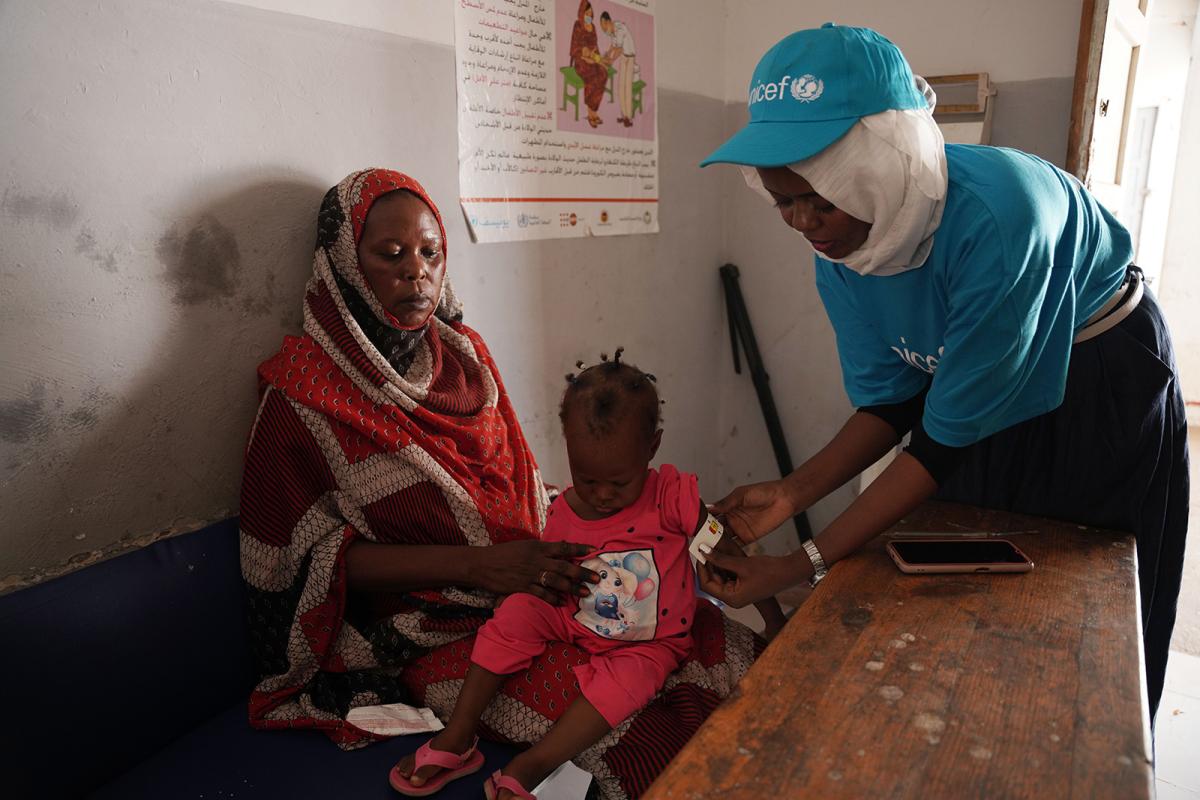Even before conflict erupted in Sudan in April, malnutrition rates among children under 5 years were on the rise. The EU responds as poor access to nutrition, health, water, hygiene, and food threaten the health of the country’s children.
Before the start of the conflict, some 3 million children under 5 suffered from acute malnutrition, of whom 612,000 were severely malnourished.
But as the fighting continues, tens of thousands of families on the move now find themselves at risk of not having enough food or good nutrition. This has resulted in an increase in the overall estimates of acute malnutrition among children under 5 to 3.4 million, of whom 690,000 are severely malnourished.
Due to the ongoing fighting, more than 1.5 million people have fled their homes. Now, they’re dealing with limited access to essential services, such as nutritious and optimal food, basic health services, to safe and adequate water, or sanitation services. All of this has deteriorated the nutrition of children under 5.
At the EU-supported Al-Dabbaghah health centre in Gezira state, located in the east-central region of Sudan, mothers with children are queuing for healthcare services. Some children look frail, small, and unwell as they are screened for malnutrition as part of the routine medical assessments being conducted here.
One by one they are weighed, and their arms measured using a colour-coded tape, known as mid upper arm circumference (MUAC) tape, to quickly identify those suffering from malnutrition.
During the process, health workers, with support from staff from EU humanitarian partner UNICEF, explain to the mothers the meaning of the 3 colours on the tape: green for normal, yellow for moderate malnutrition, and red for severe acute malnutrition.
Before the start of the current conflict, the health facility registered 10-15 cases of malnutrition monthly. But the number has significantly increased.
“We have registered 56 cases this month (July) alone and the majority are displaced people,” Hanan Abdullah, a nutritionist at the centre, confirms.
Among them is 16-month-old Mona. A few weeks ago, Mona’s health suddenly deteriorated.
“She had slowly stopped eating food and liquids and was no longer able to breastfeed like before. She was irritable and cried a lot whenever the breastmilk wasn’t enough,” her mother Aisha explained.
Unlike in the past, eating 3 meals a day is next to impossible for this displaced mother of 7 who fled conflict in Khartoum.
“Our lives were lovely, we had regular meals and my children went to school,” Aisha says. “But suddenly everything has changed.”
“Meals are no longer sufficient. If we eat breakfast, we don’t have dinner, and if we have dinner, we don’t break the fast. Sometimes we just eat boiled potatoes,” she continued.
The irregular meals are not only affecting her children, but her own health. She has noticed a reduction in breastmilk, for example, which is greatly affecting Mona’s growth.
The road to recovery
During a recent visit to the displaced camp Aisha is currently staying in, health workers referred Mona to a health facility for a medical assessment. Aisha was worried about her daughter, and for good reason – the MUAC reading was red.
While Mona is on the road to recovery, many more children around her and in Sudan are slipping into malnutrition.
Displaced families like Aisha’s are struggling to feed their children, while other families remain trapped in conflict-affected areas like the Darfur regions and Khartoum. And as is the case in conflict and other emergencies, children are bearing the biggest burden.
Sadly, the situation has been exacerbated by the lean growing season, which has seen malnutrition rates in Sudan climb even further.
Our humanitarian partner UNICEF is actively providing nutrition services through over 1,500 nutrition sites across the states. These sites offer therapeutic and nutrition supplies, equipment, support towards implementation of mass screening, capacity building, and monitoring activities.
About 76% of the Outpatient therapeutic programmes are functional in Sudan. However, Darfur, Khartoum and Kordofan having fewer functional sites.
Up to now, more than 1.7 million children under 5 have been screened for malnutrition, including in Darfur. Among them, 82,000 children with severe wasting were identified and treated with UNICEF support. Low reporting rates continue to be a challenge, with only 43% of facilities reporting in May.
Hannah and her fellow health workers go beyond by providing nutrition counselling sessions. In these sessions, mothers are encouraged to breastfeed their infants and are sensitised on food combinations using available foodstuffs to protect children from malnutrition, especially during critical times like these.



